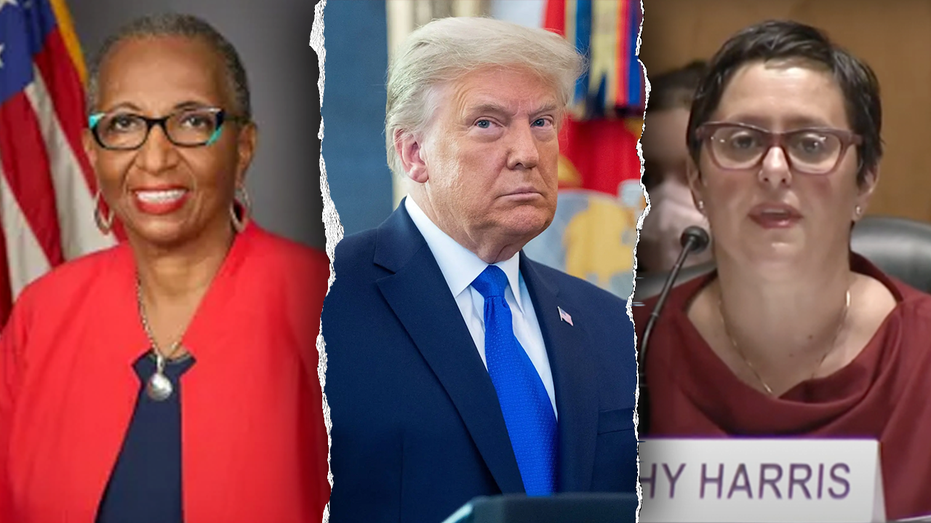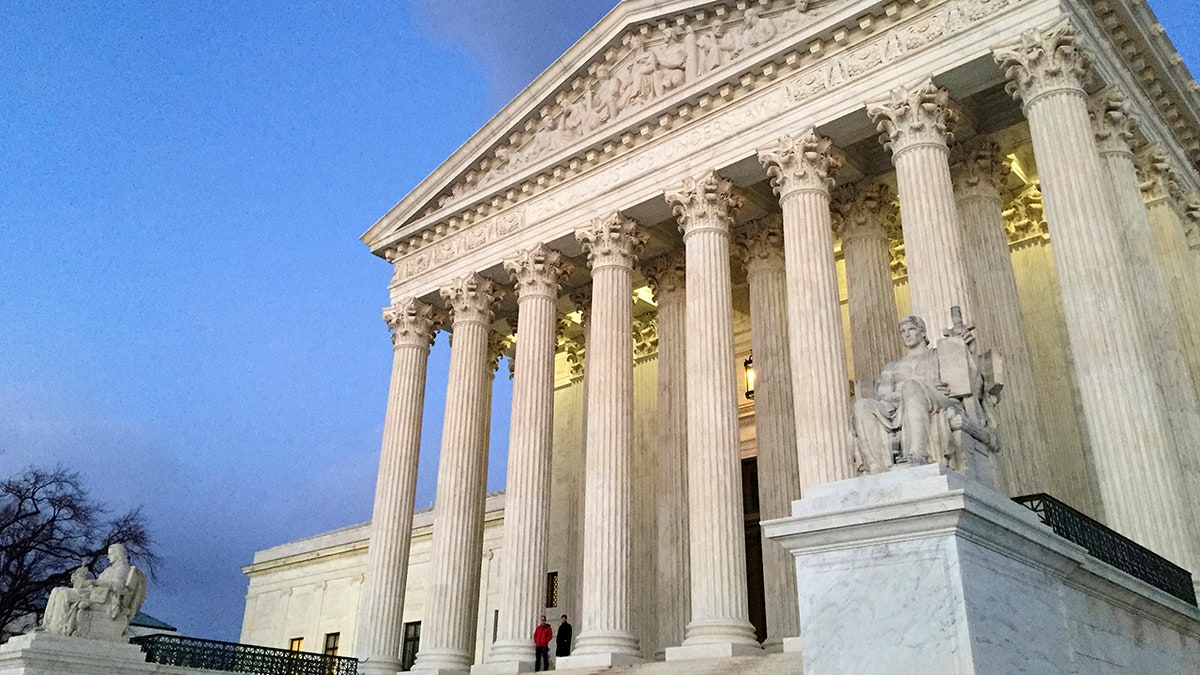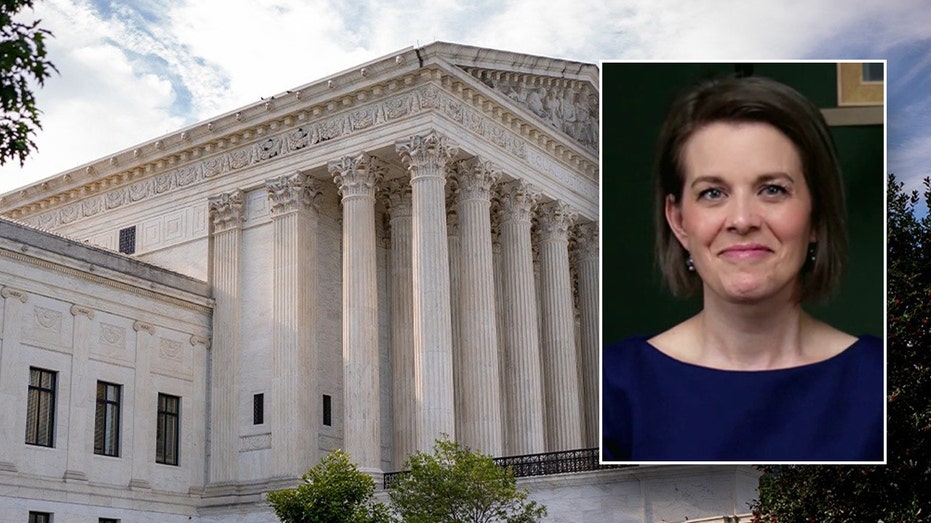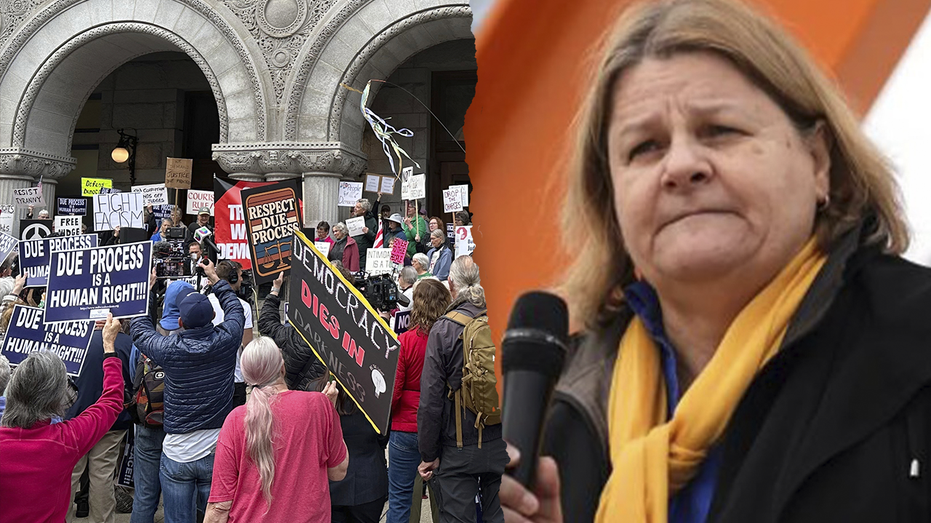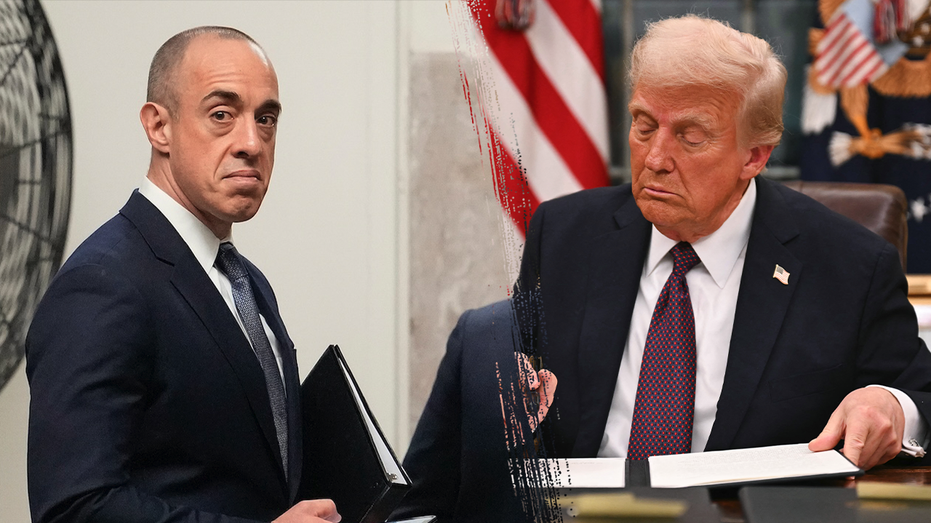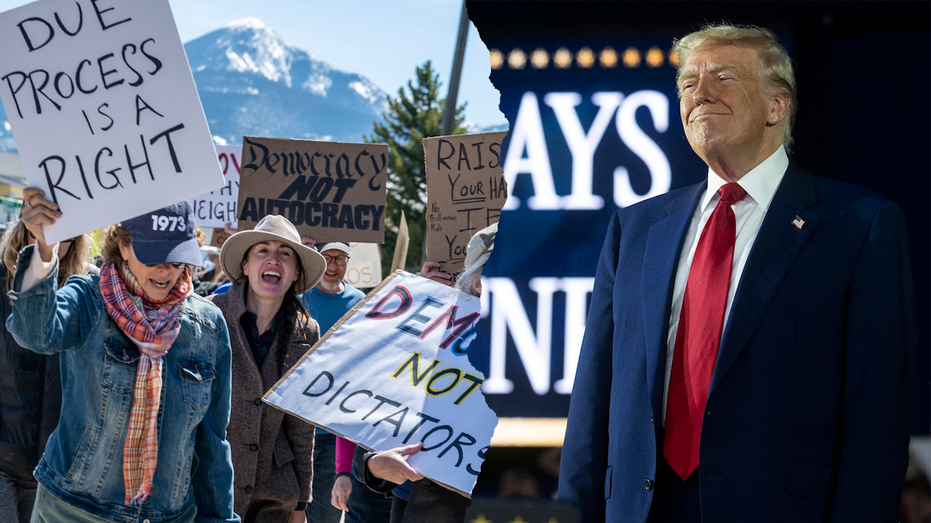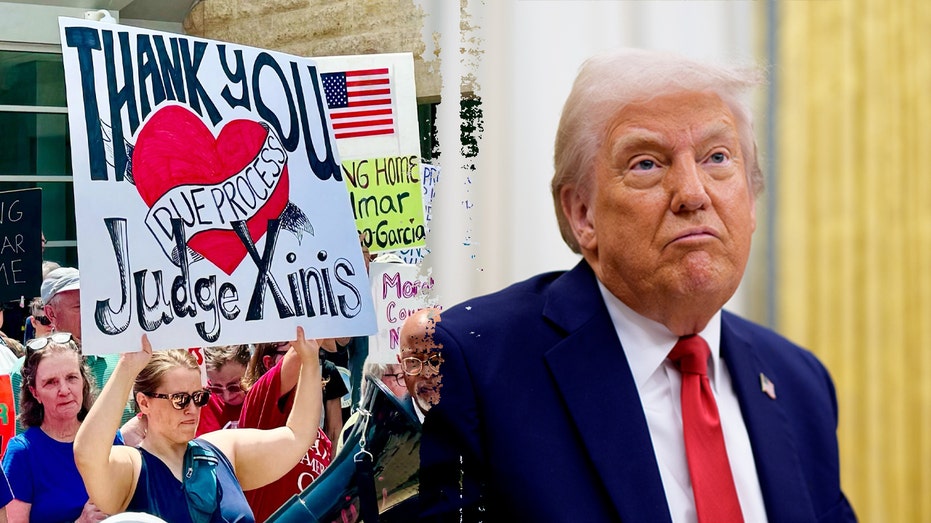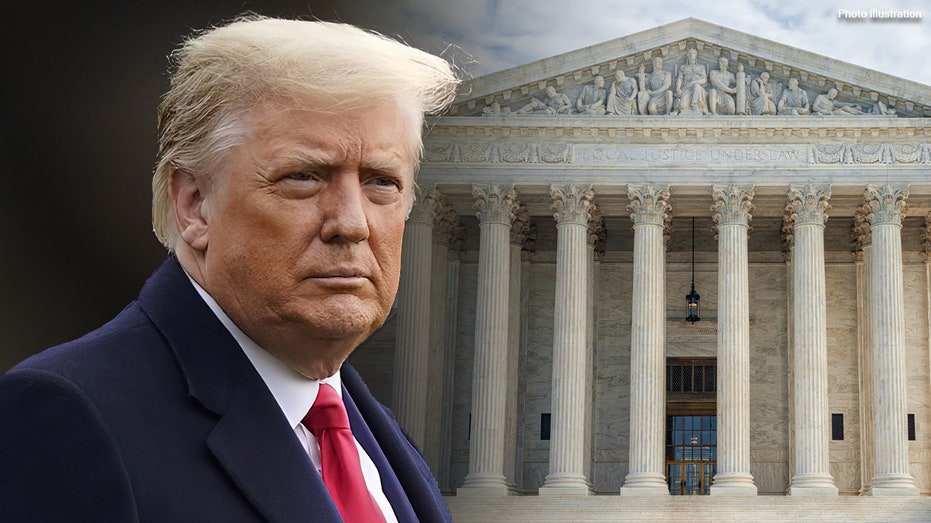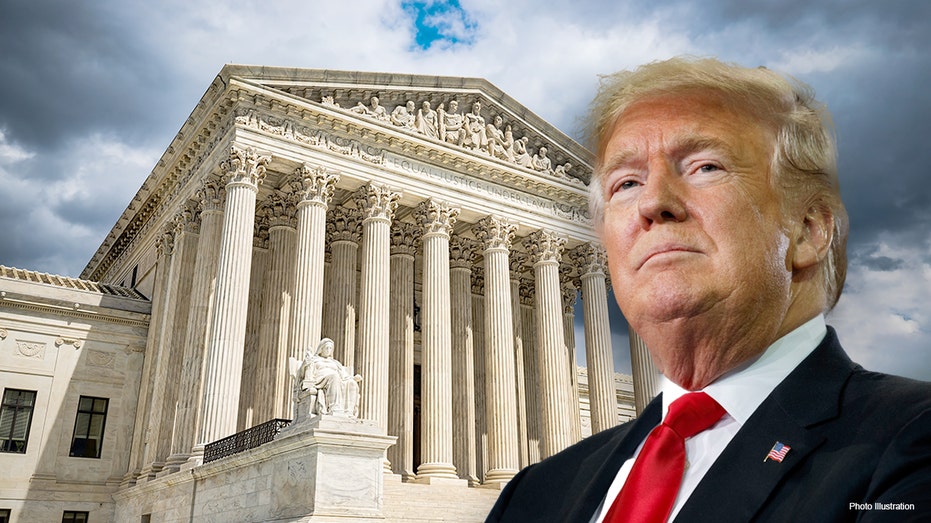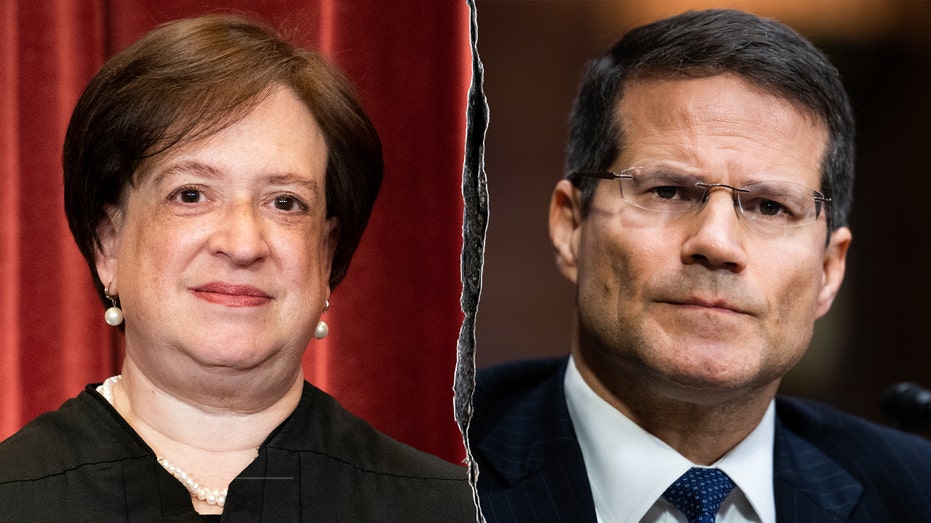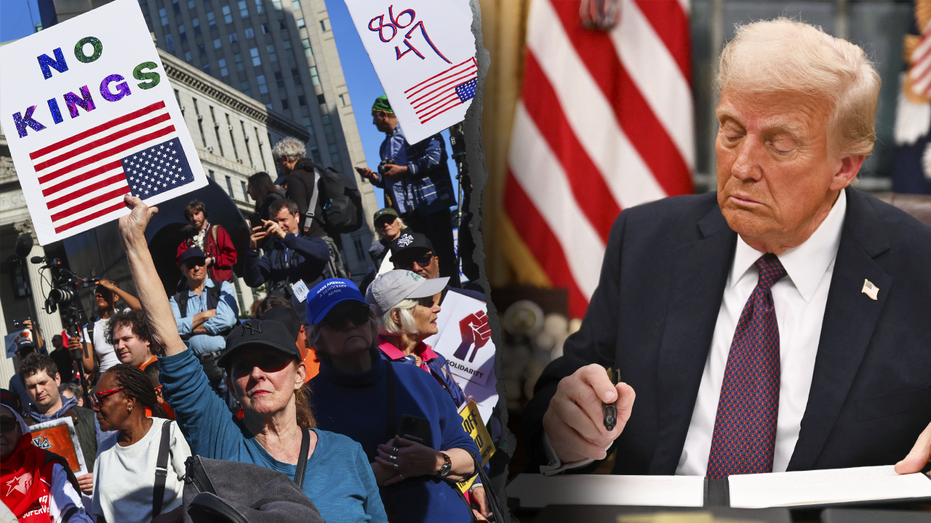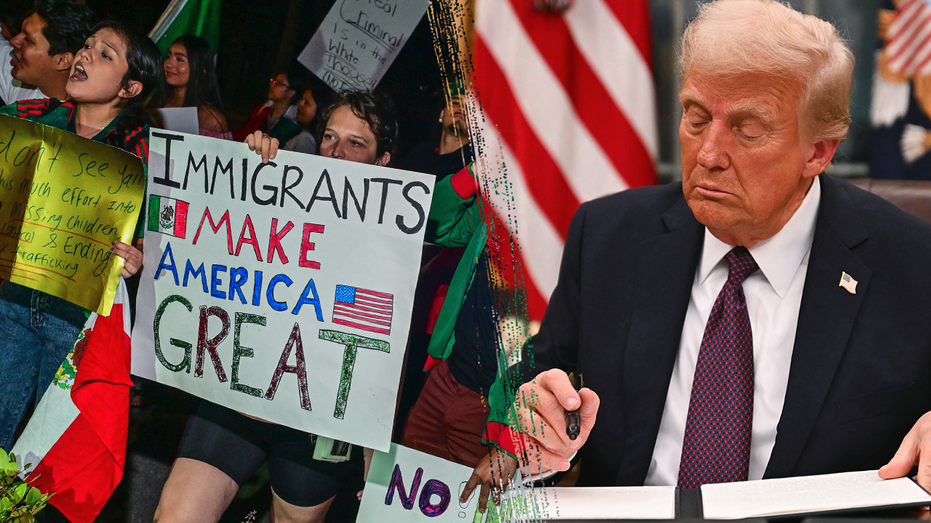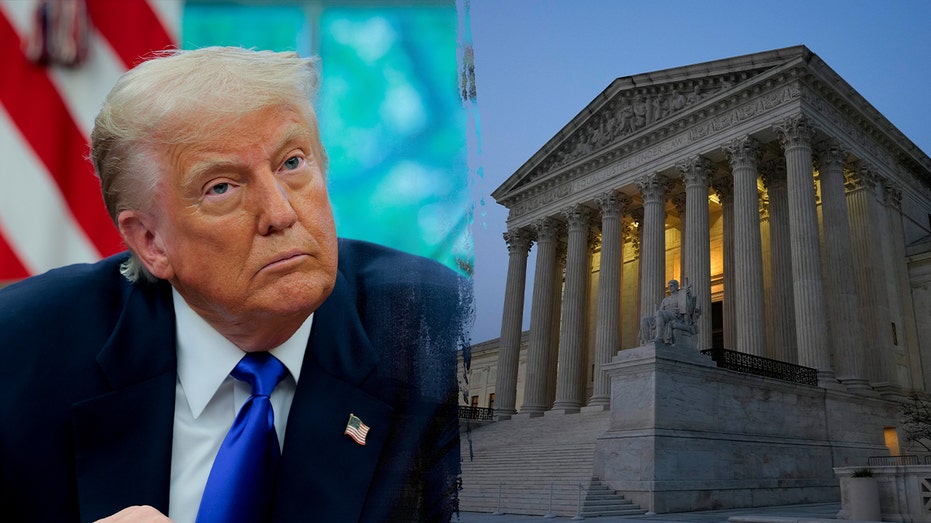Supreme Court upholds Trump's removal of Biden appointees from federal boards
The Supreme Court upheld President Donald Trump’s removal of two Democratic appointees from federal boards, handing the administration a legal victory and settling a high-stakes dispute over the president's power to fire agency officials.
The Thursday ruling comes after Supreme Court Chief Justice John Roberts agreed to temporarily halt the reinstatement of National Labor Relations Board (NLRB) member Gwynne Wilcox and Merit Systems Protection Board (MSPB) member Cathy Harris, two Democrat appointees who were abruptly terminated by the Trump administration this year.
Both had challenged their terminations as "unlawful" in separate lawsuits filed in D.C. federal court.
However, the high court suggested that it could block attempts to fire Federal Reserve Chair Jerome Powell, who, according to Trump, has complained has not cut interest rates fast enough.
APPEALS COURT BLOCKS TRUMP FROM FIRING FEDERAL BOARD MEMBERS, TEES UP SUPREME COURT FIGHT
The issue confronting the justices was whether the board members, both appointed by President Joe Biden, can stay in their jobs while the larger fight continues over what to do with a 90-year-old Supreme Court decision known as Humphrey’s Executor, in which the court unanimously ruled that presidents cannot fire independent board members without cause.
The court’s three liberal justices dissented.
"Not since the 1950s (or even before) has a President, without a legitimate reason, tried to remove an officer from a classic independent agency," Justice Elena Kagan wrote, joined by Justices Sonia Sotomayor and Ketanji Brown Jackson.
Kagan wrote that her colleagues were telegraphing what would happen.
"The impatience to get on with things—to now hand the President the most unitary, meaning also the most subservient, administration since Herbert Hoover (and maybe ever)—must reveal how that eventual decision will go," she wrote.
Lawyers for the Trump administration urged the Supreme Court to either keep Wilcox and Harris off the job while the case moves through the lower courts, or to resolve the issue directly. They asked the justices to grant certiorari before judgment – a fast-track procedure the court uses occasionally to bypass the appeals process in cases of significant national importance.
They urged that Wilcox and Harris not be reinstated to their positions, arguing in their reply brief that the "costs of such reinstatements are immense."
They argued that keeping both Wilcox and Harris in place would "entrust" the president's powers "for the months or years that it could take the courts to resolve this litigation," something they said "would manifestly cause irreparable harm to the President and to the separation of powers."
"The President would lose control of critical parts of the Executive Branch for a significant portion of his term, and he would likely have to spend further months voiding actions taken by improperly reinstated agency leaders."
Earlier this month, the U.S. Court of Appeals for the D.C. Circuit voted 7–4 to restore Wilcox and Harris to their respective boards, citing Supreme Court precedent in Humphrey’s Executor v. United States and Wiener v. United States – landmark rulings that upheld limits on the president’s power to remove members of independent federal agencies.
The majority noted that the Supreme Court has never overturned the decades-old precedent upholding removal protections for members of independent, multimember adjudicatory boards – such as the NLRB and MSPB – and said that precedent supported reinstating Wilcox and Harris.
It also rejected the Trump administration's request for an administrative stay, which would have allowed their removals to remain in place while the challenge proceeds in court.
"The Supreme Court has repeatedly told the courts of appeals to follow extant Supreme Court precedent unless and until that Court itself changes it or overturns it," judges noted in their opinion.
The ruling would have temporarily returned Harris and Wilcox to their posts – but the victory was short-lived. The Trump administration quickly appealed to the Supreme Court, which granted an emergency administrative stay blocking their reinstatement.
In their own Supreme Court filings, lawyers for Wilcox and Harris argued that the court should reinstate them to their roles on their respective boards until a federal appeals court can consider the matter.
APPEALS COURT BLOCKS TRUMP ADMIN'S DEPORTATION FLIGHTS IN ALIEN ENEMIES ACT IMMIGRATION SUIT
Both Wilcox and Harris opposed the administration’s effort to fast-track the case, warning against skipping the normal appeals process and rushing arguments. "Rushing such important matters risks making mistakes and destabilizing other areas of the law," Harris’s lawyers told the Supreme Court this week.
Wilcox, the NLRB member, echoed this argument in her own brief to the high court.
Counsel for Wilcox cited the potential harm in removing her from the three-member NLRB panel – which they argued in their filing could bring "an immediate and indefinite halt to the NLRB’s critical work of adjudicating labor-relations disputes."
"The President’s choice to instead remove Ms. Wilcox does not bring the Board closer in line with his preferred policies; it prevents the agency from carrying out its congressionally mandated duties at all," they said.
Harris and Wilcox's cases are among several legal challenges attempting to clearly define the executive's power.
Hampton Dellinger, a Biden appointee previously tapped to head the Office of Special Counsel, sued the Trump administration over his termination. Dellinger filed suit in D.C. district court after his Feb. 7 firing.
He had maintained the argument that, by law, he could only be dismissed from his position for job performance problems, which were not cited in an email dismissing him from his post.
Dellinger dropped his suit against the administration after the D.C. appellate court issued an unsigned order siding with the Trump administration.
The Justice Department, for its part, said in February a letter to Sen. Dick Durbin, D-Ill., that it was seeking to overturn Humphrey's Executor.
The Associated Press contributed to this report.
